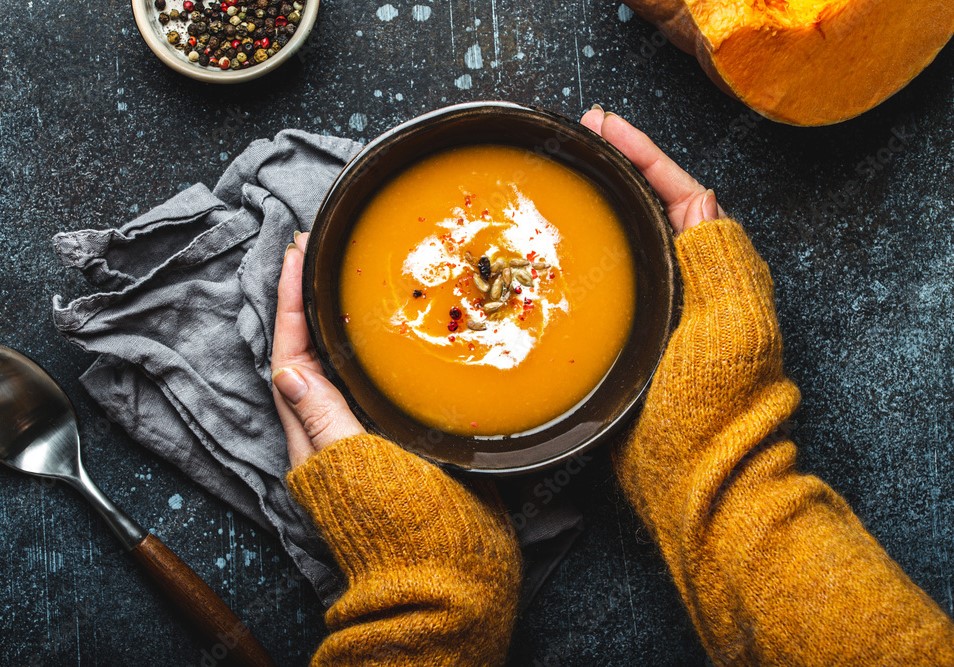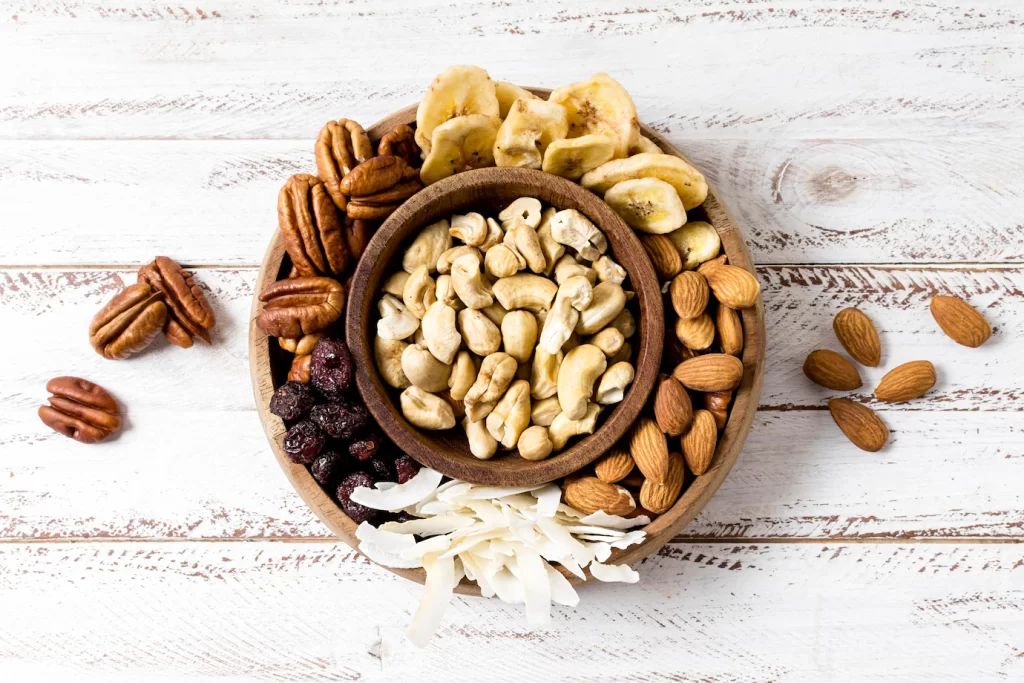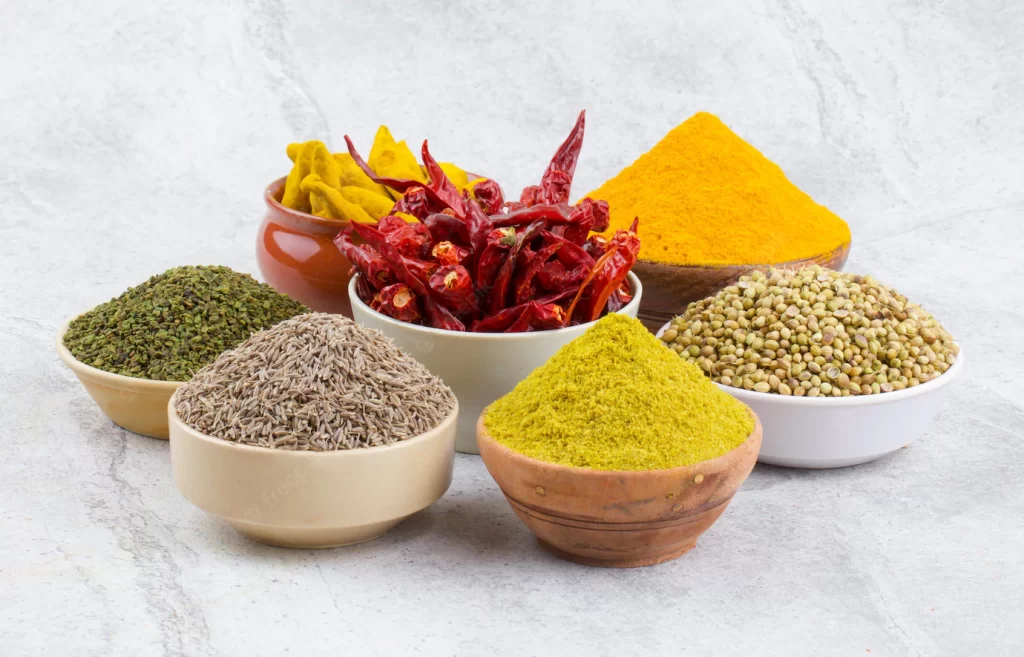When someone says “winter,” what comes to mind? Hefty, scratchy wool clothing? Cracked heels and chapped lips? Winter is undoubted all these things, but did you know it is also the ideal season for boosting immunity? At this time, people are more greedy. Amazingly, the body’s system functions better, and food is more easily absorbed in the cold. This helps the body receive more nutrition.
So how can one strengthen their immune system during the winter? It is common knowledge that meals that strengthen the immune system are healthy, clean, fresh, organic, and simple to digest. These include dairy products, whole grains, legumes, nuts, seeds, fresh produce, dried fruits, and ghee. In addition, several spices also offer anti-microbial qualities that shield us against illnesses and colds. Additionally, they stimulate the activity of digestive enzymes and cellular metabolic processes, ensuring full nutritional absorption.
Table of Contents
Introduction To Winter Foods
Our bodies want warm, nourishing foods rich in calories throughout the winter. For this urge to be sated, we require warming meals. Any vegetable that takes a long time to grow and whose edible part grows below the ground is usually warming and good for the winter. A few nuts, oilseeds, dry fruits (like dates), and certain nuts, are also warming. Additionally, you should eat more spices at this time of year than throughout the summer.
Lean dairy, meat, fish, and chicken are all animal products under the warming category. Proteins, whole-grain cereals, and good fats also provide the energy you need to stay warm. The healthiest winter green vegetables include palak, methi, sarson, muli, and pudina. Root vegetables also include potatoes, onions, garlic, radish, yams, sweet potatoes, beets, and turnips.

Stay Cozy with These Must-Have Winter Foods
1. Soups
As we all know, Soups are the best option as they have a very high amount of vegetables and keep your whole body warm in the winter season. Pulses, gourds, and barley soups are healthy options and can also be a main meal if you add carbs. You can have the healthiest meal of the day with a dash of spices such as cumin, cinnamon, and ginger. These are very healthy options for moms-to-be. Lactating mothers can enjoy soup at midnight or in the evening. Soups are a great evening snack for kids that will fill their tummies and keep them warm at the same time.
MUST TRY: Butternut squash soup
2. Cereals
Oatmeal, porridge, and whole wheat dishes are great ways to start the day. Even if we often want pizzas and pastas, it is advisable to consume them just sometimes since they will not keep our bodies warm and will only have a transient impact because simple carbs dissolve fast. Pregnant women and new mothers can enjoy vegetable-enriched porridges or oats. Children can be served a whole wheat sandwich, hot milk with cornflakes, or buns with egg or veggie filling.
3. Dry fruits and nuts
Walnuts, cashews, and almonds are excellent sources of healthy fats that also helps in maintaining body temperature. Figs, dates, and olives are also suitable alternatives, As they are frequently consumed in nations that experience extreme cold. Dates are a great source of iron; when combined with a hot herbal concoction, you will get all the iron you need. A handful of dried fruits can be consumed by pregnant women each day.
Lactating moms can also enjoy a handful of dry fruits and a laddoo made of dried fruits. Kids who like dry fruits can also receive a mouthful every day. You may also add a powdered dry fruit mixture to their milk.

4. Meat
Meat may be consumed by non-vegetarians since it boosts body warmth during metabolism and is a valuable source of iron and proteins. If your doctor authorizes it, you can include meat in your pregnancy diet. It aids in reaching your iron needs.
It is quite fine for a breastfeeding woman to have included chicken after a week of having given birth. Soups and mild curries are always a good place to start. Once you’re used to it, you may gradually incorporate additionally fried or roasted meat into your diet. Chicken can be included in an infant’s diet once they reach the age of one year.
5. Honey
Honey, either alone or in salads, can also aid in the winter because it is traditionally used to treat coughs and colds. It can be part of the diet of a pregnant or breastfeeding woman as long as she does not possess a history of diabetes. Only at the age of one year infants can start to consume honey.
6. Spices
Spices are an excellent source of thermogenesis. Because spices are frequently used in Indian food, this quickly becomes a part of our everyday diet. Ginger, cumin, pepper, sesame, and cinnamon are among the standouts. Ginger can be used in tea, soup, or as a condiment in any curry. Cumin helps your body stay warm for extended periods of time. As a result, add cumin liberally to your dishes. Cinnamon powder can be used to boost the flavor and metabolism of salads, hot cocoa, and lattes. Spices can be added to soups or regular meal preparations for pregnant women.

Final Words
The chilly weather might cause you to miss your workouts and even put you on a mood swing that can cause you to overeat out of stress and boredom. Incorporate both proteins and carbs into your diet. This will prevent hunger sensations brought on by low blood sugar and balance the soothing brain chemical serotonin. The ideal ratio is two-thirds vegetables and salads and one-third protein.
Pay attention to your way of living as well. The immune system can be compromised rather than strengthened by staying up late, working at night, eating irregularly, exposing oneself to stress and weariness, and sleeping during the day. Spend the winter months this year remaining warm and healthy.
ALSO READ: Winter Smoothie Recipe








